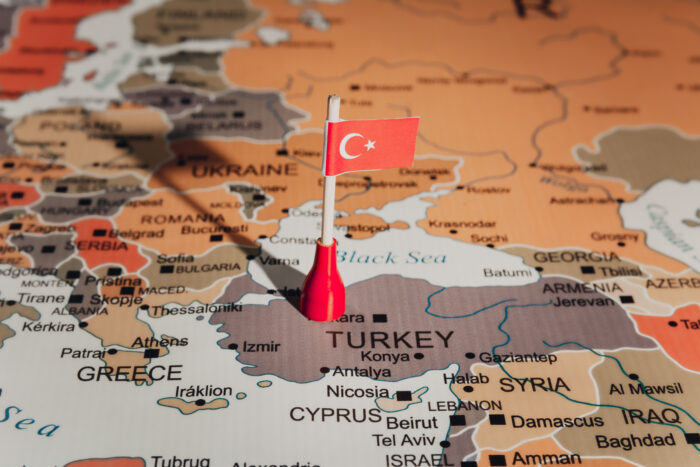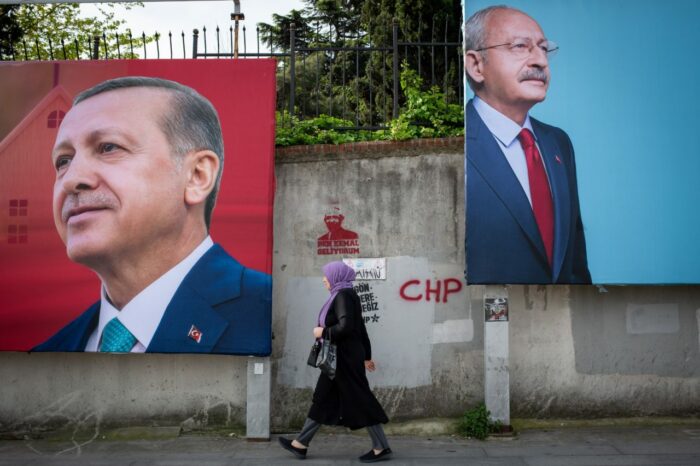The Progressive Post
The West in the minority or the reform of global governance

The signs of crisis in the system of global governance created after the Second World War are multiplying. If these trends continue, it is not difficult to predict that we will have, in addition to a West that can no longer lead the world alone, a fragmented and weakened multilateral system, incapable of responding to the highly pressing global challenges, from climate, poverty, nuclear weapons or artificial intelligence. However, Europe has a choice.
The invasion of a sovereign country such as Ukraine, in flagrant violation of the United Nations Charter, is not being condemned by the UN Security Council, which is currently even chaired by the aggressor, while the General Assembly does not have the necessary powers or a clear majority to achieve a ceasefire.
The European Union has managed to react with an unprecedented level of unity on various fronts, from the protection of the Ukrainian population, to arms provision, to sanctions against Russia and the reduction of its energy dependencies. The EU is supported by NATO and the Western G7 club but this, as seen at its last summit in Hiroshima, has lost its former economic hegemony as it represents only 30 per cent of the world economy and 10 per cent of the world population. The G7 seeks to maintain a geopolitical role by inviting other countries like Brazil and India, but these influential countries also have other plans.
In addition to presiding the G20 (India now and Brazil later), these countries have relaunched the BRICS with China, Russia and South Africa, with a summit planned for August in Johannesburg. They have also invited other non-Western countries such as Iran and Saudi Arabia and have strengthened the New Development Bank based in Shanghai and presided by the former Brazilian president Dilma Rousseff, with the intention of circumventing the Washington consensus promoted by the World Bank and the International Monetary Fund.
Behind this is a strategy patiently woven by China with its new Silk Road spread worldwide, disputing via investment in new infrastructure the influence that the US and EU seek to maintain with their own investments and cooperation agreements. Although there is now more talk of ‘de-risking’, that is reducing excessive interdependence, a real process of de-coupling, especially between the US and China, is clearly underway in the digital, energy and industrial fields, not to mention the military field.
Moreover, the Global South – where China always appears associated with the so-called G77 – is emerging with more articulate positions demanding reforms of the global economic governance that will allow them to respond to climate change, poverty reduction and the implementation of sustainable development goals, which have backtracked because of the financial crisis, the pandemic and now the war in Ukraine.
If these trends continue, it is not difficult to predict that we will have, in addition to a West that can no longer lead the world alone, a fragmented and weakened multilateral system, incapable of responding to the highly pressing global challenges, from climate, poverty, nuclear weapons or artificial intelligence.
The EU should be enlightened enough to realise that the world has changed and will even change much more.
The EU should certainly maintain its firm support for Ukraine in its fight against the invader and in defence of its sovereign democratic rights. It must prepare for the new major enlargement by internal institutional reform and by involving the candidate countries as early as possible in its energy, digital, research and education networks, in promoting the rule of law and social rights, and in strategically coordinating its foreign and security policies – as we have started seeing at the recent European Political Community summit in Moldova.
But if the European Union wants to accelerate the emergence of the conditions to bring peace back to its continent it needs to work actively to make more allies across the world, starting by listening to the countries of the Global South in Africa, Latin America and Asia and addressing their problems with more convincing solutions, which need to be built together. It is necessary to recognise that these countries do not have equivalent conditions for the implementation of the objectives of sustainable development, with regard to access to technologies, markets and financial resources. Hence the need to negotiate a reform of the global economic governance based on a Global New Deal, as proposed for the World Summits to be promoted by the UN in 2023, 2024 and 2025 under the impetus of António Guterres.
The EU must also have a clear position on the strategic competition between the US and China. Indeed, the de-coupling between them and the appearance of two competing world orders is not in Europe’s interest. The EU must pursue its own defence of its values and interests, but the ambition to impose a ‘European order’ would also be absurd and unrealistic. The real solution is to work for standards and mechanisms of global governance based on more intensive and inclusive international cooperation, that is for the renewal of the multilateral system.
Working for new global rules in ecological, digital, social, commercial and financial change: this is what the EU should promote in its current negotiation with the US. And it should say the same to China if it does not want to be branded as a ‘strategic rival’.
Photo credits: Shutterstock.com/ChristopheRoland




